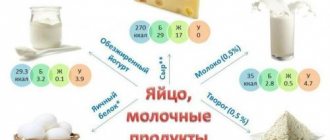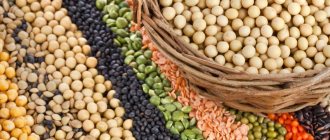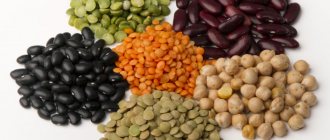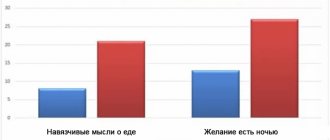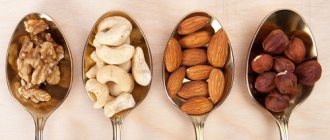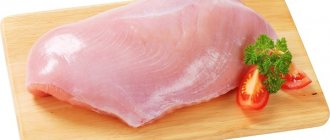Protein is the main component in the structure of the body. It consists of skin, muscles, tendons. Protein is also part of hormones, enzymes, and molecules that take part in the functioning of all organs and systems. Life without protein is not possible. It consists of amino acids linked together in a chain. Protein obtained from animal foods provides the body with the required ratio of amino acids. If you use fish, meat, eggs for food every day, then there will be no problems with the required amount. For those who don't eat meat, it will be more difficult to get protein from other foods. How much protein is absorbed in one meal? Why does the body need it, and what products can we get it from?
Amount of protein digested per meal
How much protein is absorbed in one meal? Each person is individual and the process of digestion and assimilation of one or another type of product occurs differently, and it is long and complex. According to many experts, only 30 grams of protein can be absorbed in one meal. But sometimes this figure may increase or decrease. Because the human body has different muscle mass, size of the stomach and intestines, and physical activity. All these factors play an important role in protein absorption.
The question of how much protein is absorbed in one meal cannot always be answered unambiguously. It is a complex substance and does not immediately enter the bloodstream, but first undergoes a complex digestion process that takes a lot of time. For example, when eating 100 grams of protein sports nutrition, it takes half an hour to digest it. And products such as eggs, meat, cottage cheese, cereals and fish need an hour and a half to absorb protein from them. Not only the stomach and intestines, but also enzymes and hormones take part in the digestion process.
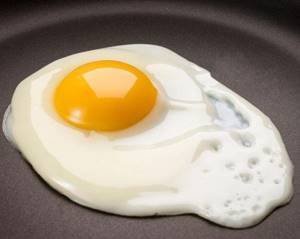
Putting it all together
The ultimate goal of our body is to maintain its health. If you consume too much protein at one time, the intestines will simply slow down the process of its absorption and successful absorption of amino acids. However, not a single study has examined the question of the maximum amount of protein that could be consumed “without harm to health” - by the way, this concept is quite difficult to accurately define.
The same should be said about the processes of building muscle mass and burning fat, which require amino acids found in the blood supplying the entire body (systemic circulation), and not just those that run between the intestines and the liver (portal circulation - blood supply to the abdominal organs). . The body slows down its absorption of amino acids in response to how much you eat, meaning amino acid levels determine the speed of digestion.
Currently reading: Weight-bearing exercise offers unique benefits for heart health
Our body knows how to adapt in response to stress and does it quite well. And this is not an isolated case when the body strives to preserve all possible amino acids - as effectively as this can be done in each specific case.
The study, which included women, compared consuming more than 54 grams of protein per meal versus eating four meals a day. No differences were found between both diets (25). On average, the experiment participants had 40 kg of muscle mass, which indicates the efficient processing of large volumes of protein. Interestingly, the same researchers found that consuming larger amounts of protein each time is actually more effective for older women (26).
Evidence from studies of intermittent (short-term) fasting supports the theory that our bodies can handle more protein than most people realize. Two studies showed that consuming an average of 80–100 g of protein over 4 hours did not lead to changes in muscle mass (27,28).
Daily protein intake
Protein is an incredibly important protein for the healthy functioning of the body. If there is not enough of it, various diseases can begin. How much protein do you need per day? Dietary organizations have come to the conclusion that it is enough for a person to take 0.8 grams of protein per kilogram of weight. It turns out that a man needs approximately 56 grams per day, and a woman needs 46 grams. Such indicators are too modest and this amount of protein is only enough to avoid its deficiency in the body. But not enough to maintain health and beauty.
How much protein does a healthy person need per day? The minimum daily dose is 66 grams. Optimal - 100 grams. The indicator may vary depending on the age, weight of the person and his active lifestyle. Growing bodies need twice as much protein as older people.
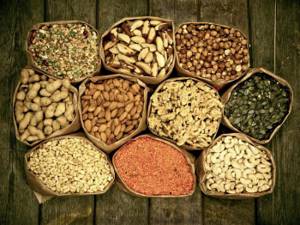
Initial phases of protein digestion
Before we start arguing about numbers, let's clarify exactly how protein is digested in the body.
The digestion process begins in the mouth, from where, after grinding, the food enters the esophagus. In the oral cavity, food, including protein, is thoroughly chewed and sent to the stomach, where the absorption of nutrients occurs much faster.
Under the influence of gastric juice, consisting of hydrochloric acid, potassium chloride and sodium, protein denaturation occurs (chemical analysis and breakdown of food entering the stomach). Enzymes are produced that speed up the digestion process.
Pepsin is considered one of the key enzymes in protein digestion. There is an opinion that when consuming protein in large quantities, the body needs additional supplies of this enzyme from the outside. But research on this matter continues to be conducted, so it is too early to say anything reliably.
Food sources of complete protein
For every person, proteins are an integral part of a balanced diet. Proteins contained in products are divided into two groups according to their value:
- A complete group that contains a complete set of essential amino acids. This applies to products of animal origin.
- Inferior group, which includes products of plant origin.
Protein-rich foods:
- eggs contain about 20 percent protein with the required amount of amino acids;
- cottage cheese contains 14% protein;
- hard cheeses - 30%;
- poultry meat - 17 percent protein;
- beef and liver - 25%;
- fish and seafood - 20-25% protein;
- legumes and soybeans - 14 percent;
- cereals - 12%;
- Brussels sprouts - 9%.
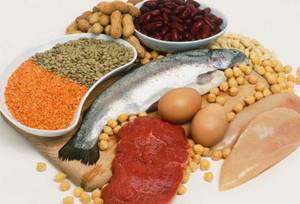
Protein storage and use
Does the small intestine preserve my muscles?
The small intestine normally absorbs about 95% of the protein from food (14,15). Its unabsorbed remains pass into the large intestine, where they are fermented by bacteria (16).
The small intestine also needs nutrients. It absorbs many amino acids, but it absorbs some of them to enable itself to work and recover (17,18). Almost half of these absorbed amino acids are used by the intestine itself and its neighboring tissues (19). The small intestine primarily metabolizes animal-derived amino acids, particularly glutamate, glutamine, branched-chain amino acids (BCAAs), threonine, cysteine, and arginine (15).
Due to these high demands, the small intestine is able to hold large amounts of amino acids waiting until the body needs them and can absorb them (15).
Pool of free amino acids
Because of the small intestine's ability to "hold" proteins, it is considered a source of free amino acids that the body uses as needed (15, 21). This is not a storehouse in the full sense of the word; during some biochemical processes, amino acids are transformed into glutamine (the main source of energy for the cells of the gastrointestinal tract) (22), (23).
During periods of protein deficiency, the intestinal need to use amino acids for fuel is reduced (24).
Proteins, fats and carbohydrates are sources of proper metabolism
A rational and healthy diet contains a set of useful substances such as proteins, fats and carbohydrates. The required ratio depends on the person’s way of life. Protein and carbohydrates are equally necessary for humans. They are considered sources of energy and beauty. A deficiency of carbohydrates will lead to disruption of the metabolic process. They enter the human body together with glucose and, like proteins, are involved in many functions. Protein and carbohydrates are necessary for the normal, full functioning of the body. The latter provide the body with vitamins and minerals. Carbohydrates are found in vegetables and fruits, as well as in bread, pasta, and potatoes.
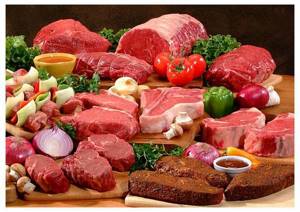
Product compatibility. Proteins fats carbohydrates
When taken together, different products have different effects on each other's absorption. Proteins, fats and carbohydrates must be taken in small quantities. The basis of the diet should be vegetables and fruits. Also foods containing protein. These are eggs, cottage cheese, meat and fish. It is healthy to eat potatoes, pasta and bread, which are rich in carbohydrates. According to many scientists, proteins and carbohydrates are not considered compatible products and can cause damage to human health.
Once in the stomach, proteins increase acidity, which stops the digestion of carbohydrate foods, which can only be absorbed in an alkaline environment. Never combine fats and proteins. For example, meat, eggs and vegetable or butter. Otherwise, fat will interfere with the production of gastric juice. Try not to combine sour fruits with proteins. Fruit acids will delay the natural production of gastric juice and interfere with the normal digestion of protein foods. Also, this combination of products can lead to fermentation. Remember, the simpler the food, the healthier it is. Healthy eating is the key to a long and fulfilling life. Try to eat melon separately from all other foods. Also eat potatoes and porridge with bread separately, otherwise fermentation and bloating will occur in the intestines, which is fraught with serious complications.
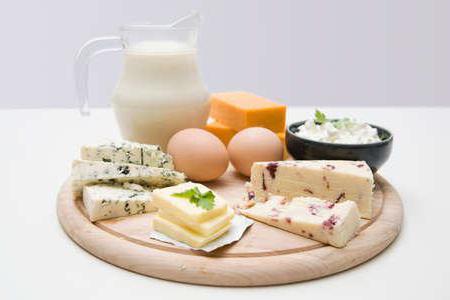
Sources
- Munck BG, Munck LK Effects of pH changes on systems ASC and B in rabbit ileum. Am J Physiol. (1999)
- Munck LK, et al Transport of neutral, cationic and anionic amino acids by systems B, b(o,+), X(AG), and ASC in swine small intestine. Comp Biochem Physiol A Mol Integr Physiol. (2000)
- Munck LK Chloride-dependent amino acid transport in the small intestine: occurrence and significance. Biochim Biophys Acta. (1995)
- Dave MH, et al Expression of heteromeric amino acid transporters along the murine intestine. J Physiol. (2004)
- Palacín M, et al Molecular biology of mammalian plasma membrane amino acid transporters. Physiol Rev. (1998)
- Groneberg DA, et al Intestinal peptide transport: ex vivo uptake studies and localization of peptide carrier PEPT1. Am J Physiol Gastrointest Liver Physiol. (2001)
- Nutritional Value of {15N}-Soy Protein Isolate Assessed from Ileal Digestibility and Postprandial Protein Utilization in Humans
- Net Postprandial Utilization of {15N}-Labeled Milk Protein Nitrogen Is Influenced by Diet Composition in Humans
- Luiking YC, et al Casein and soy protein meals differentially affect whole-body and splanchnic protein metabolism in healthy humans. J Nutr. (2005)
- Dockray GJ Cholecystokinin and gut-brain signaling. Regul Pept. (2009)
- Chandra R, Liddle RA Cholecystokinin. Curr Opin Endocrinol Diabetes Obes. (2007)
- Storr M, et al Endogenous CCK depresses contractile activity within the ascending myenteric reflex pathway of rat ileum. Neuropharmacology. (2003)
- Geraedts MC, et al Direct induction of CCK and GLP-1 release from murine endocrine cells by intact dietary proteins. Mol Nutr Food Res. (2011)
- Deutz NE, et al Increased intestinal amino-acid retention from the addition of carbohydrates to a meal. Clin Nutr. (1995)
- Ten Have GA, et al Absorption kinetics of amino acids, peptides, and intact proteins. Int J Sport Nutr Exerc Metab. (2007)
- Zebrowska T, et al Secretion of endogenous amino acids in the gastrointestinal tract and amino acid resorption in the swine. Arch Tiernernahr. (1976)
- Contribution of rat liver and gastrointestinal tract to whole-body protein synthesis in the rat
- Intestinal Mucosal Amino Acid Catabolism
- Van Der Schoor SR, et al The high metabolic cost of a functional gut. Gastroenterology. (2002)
- Deutz NE, Bruins MJ, Soeters PB Infusion of soy and casein protein meals affects interorgan amino acid metabolism and urea kinetics differently in pigs. J Nutr. (1998)
- Soeters PB, de Jong CH, Deutz NE The protein sparing function of the gut and the quality of food protein. Clin Nutr. (2001)
- Bruins MJ, Deutz NE, Soeters PB Aspects of organ protein, amino acid and glucose metabolism in a porcine model of hypermetabolic sepsis. Clin Sci (Lond). (2003)
- In vivo amino acid metabolism of gut and liver during short and prolonged starvation
- van Goudoever JB, et al Intestinal amino acid metabolism in neonates. Nestle Nutr Workshop Ser Pediatr Program. (2006)
- Arnal MA, et al Protein feeding pattern does not affect protein retention in young women. J Nutr. (2000)
- Arnal MA, et al Protein pulse feeding improves protein retention in elderly women. Am J Clin Nutr. (1999)
- Soeters MR, et al Intermittent fasting does not affect whole-body glucose, lipid, or protein metabolism. Am J Clin Nutr. (2009)
- Stote KS, et al A controlled trial of reduced meal frequency without caloric restriction in healthy, normal-weight, middle-aged adults. Am J Clin Nutr. (2007)
Currently reading: Research reveals previously unknown pathway by which glyphosate destroys health
Original article: https://examine.com/faq/how-much-protein-can-i-eat-in-one-sitting/

Share this article! Please send it to your friends and colleagues! Share it on social networks!
Shares
- VKontakte 0
- Facebook 0
- Twitter 0
- Evernote 0
- Telegram 0
- Like 0
- Print 0
- More
Algorithm for combining products with each other
- It is not recommended to combine the intake of foods containing sugar and starch with proteins and sour fruits;
- the time between meals should be at least 4 hours;
- You should also not combine proteins with sugar, flour and margarine.
All food products have a conditional division between themselves:
- products containing starch composition;
- protein;
- neutral.
Based on their digestibility in the stomach, food products are classified according to two main points:
- Protein foods of animal and plant origin. This includes all types of meat and meat products, grains and legumes, eggs, and dairy products.
- Starchy foods. This is bread, all products made from flour, cereals.
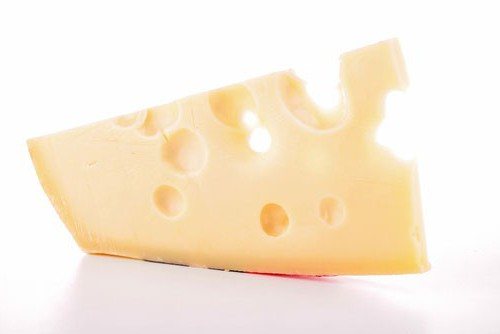
Conclusion
Now you know how much protein is absorbed in one meal. If possible, adhere to the required amount and daily caloric intake. By following these simple rules, you can normalize your metabolism and get rid of excess weight. Nutritionists advise not to exceed 2,500 calories per day. This amount is quite enough to lead a healthy lifestyle and perform physical and mental exercise. If you consume excess calories, it will lead to obesity, and a deficiency will lead to a lack of energy for the construction of healthy cells and loss of stamina. The recommended dose of protein per day is 100 grams, which equals 410 calories. A decrease in its amount in the body will lead to dystrophy of muscles and muscle tissue. Increased protein intake is fraught with an increase in homocysteine in the blood. Everything should be in moderation. Be healthy!
How many grams of protein are absorbed at a time? How much protein is absorbed at a time?
Is there a limit to protein absorption per meal?

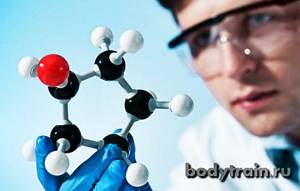
Review on the topic: How much protein can you eat at a time?
Surely you have heard the opinion that you should not consume more than 30 g of protein at a time. This review will reveal what this statement is based on and how much protein you can actually eat at a time, with links to scientific data. Go!
“The body absorbs no more than 30 g of protein in one meal” - true or false?
More recent studies (AM J CLIN NUTR. 2009 and JOURNAL OF THE AMERICAN DIETETIC ASSOCIATION. 2009) have examined the effects of protein intake on post-exercise recovery. The essence of the experiment was that after training, the experimental group took whey protein and went to rest, and after 4 hours they were tested. From this group, some did not take protein at all, some took 20 g, others 30, 50, etc.
The experiment showed that taking more than 30 g of protein at a time does not provide any increase in protein synthesis, i.e. large portions do not affect recovery. It is worth noting that these studies examined the effects of protein intake immediately AFTER EXERCISE on RECOVERY.

The second study involved both young and older people. After the load, the “test subjects” were fed meat in quantitative terms of pure protein 30 g and 90 g. You can use KSB 55 for control and to know how much you can consume. Study conclusion: 90g of protein did not make any difference in recovery (muscle synthesis) compared to 30g.
It is not correct to close the question of the maximum one-time protein intake based on studies that studied exclusively muscle synthesis after training, and even after 2-4 hours (note that the issue of protein absorption by the body was not studied)!
But someone took these studies as a basis and released two common myths onto the Internet:
- “taking more than 30 g of protein at a time is not absorbed by the body, creates a load on the kidneys, and wastes your money in the toilet,”
- “excess protein over 30 g will directly go into fat.”
Well, that's nonsense!
If our body absorbed only 30 g of protein per meal, then people such as military personnel, lumberjacks, builders, miners, miners in general are people who work very hard and eat 2-3 times a day, because... There’s simply no time, they’d just die from their work. And if they didn’t die, they would very quickly become “uncomfortable” from a lack of nutrients.

Failure to digest more than 30 g of protein at a time is a fiction
Our world is large and there are people in it who are far from the topic of sports and proper nutrition. They all eat on average 2-3 times a day. If the body absorbed only 30 g of protein at a time, humanity would die from protein deficiency.
In addition to what has been said, it is worth considering that people of average build weighing approximately 70 kg were studied. Obviously, for a 100 kg athlete, 30 grams of protein will have less effect on muscle synthesis than for a 70 kg athlete.
Anatomy, physiology and common sense must prevail!
How much protein can our body actually absorb?
Study conducted by J NUTR. in July 2000, “Protein feeding pattern does not affect retention” was carried out on girls. One group of girls ate the daily protein intake in one meal, and the second in 4. In total, both groups took the same amount of protein. Study conclusion: There is no difference in muscle synthesis and nitrogen balance between the two groups.
Another study on intermittent fasting conducted in November 2009 by AM J CLIN NUTR. entitled “Intermittent fasting does not affect whole-body glucose, lipid or protein metabolism” showed that a single intake of 101 g of protein (for the whole day) has no effect on the preservation and change of muscle composition, compared with control groups that ate those 101 g of protein in 2 or 4 doses.
Everyone knows that the absorption of protein, especially from meat, is a costly and labor-intensive process (especially in terms of time). Digestion of food and its absorption takes a very long time, especially products such as cottage cheese and casein (almost up to 6 hours).
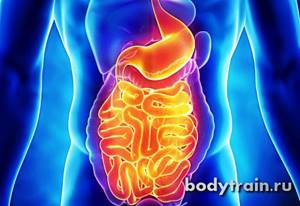
The small intestine is the main site of nutrient absorption
Digestion of food depends primarily on the proper functioning of enzyme systems, on the normal functioning of the digestive glands and gastric juice. With healthy systems, there should be no problems with absorption.
The degree of absorption of nutrients (including protein) by our body depends on the absorption capacity of the small intestine. Nature has endowed the intestines with a simply enormous ability to absorb various substances. In a day, a person can “suck in” half a kilo of fat, 500-700 g of protein, 20 liters of water, etc.
This way, a large single dose of protein will be digested and absorbed completely, but it will take longer than digesting a smaller portion.

